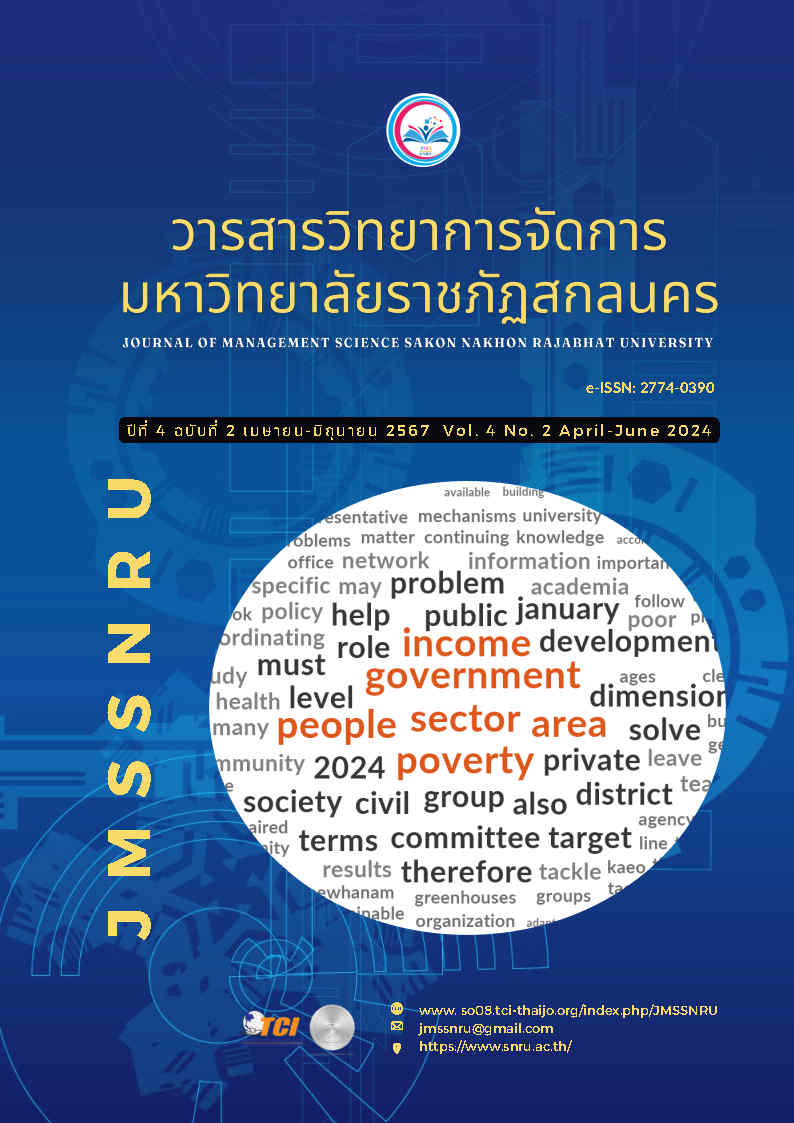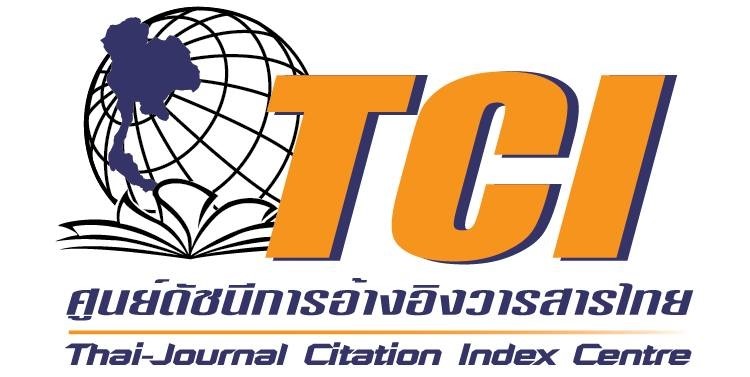กลยุทธ์การจัดการเรียนรู้เชิงรุกเพื่อยกระดับคุณภาพการศึกษาขั้นพื้นฐาน
คำสำคัญ:
กลยุทธ์, การจัดการเรียนรู้เชิงรุก, กลยุทธ์, การจัดการเรียนรู้เชิงรุก, คุณภาพการศึกษาบทคัดย่อ
การจัดการเรียนรู้เชิงรุกเกี่ยวข้องกับแนวทางที่เป็นระบบเพื่ออำนวยความสะดวกให้กับกระบวนการเรียนรู้ที่ช่วยให้ผู้เรียนสามารถควบคุมประสบการณ์การเรียนรู้ของตนเองได้เป็นอย่างดี แนวทางการจัดการเรียนรู้เชิงรุกมีบทบาทสำคัญในการยกระดับคุณภาพการศึกษาโดยการส่งเสริมสภาพแวดล้อมการเรียนรู้แบบพลวัตร และมีส่วนร่วมซึ่งจัดลำดับความสำคัญของความสำเร็จของผู้เรียน การศึกษาครั้งนี้มีวัตถุประสงค์เพื่อศึกษาแนวกลยุทธ์การจัดการเรียนรู้เชิงรุกเพื่อยกระดับคุณภาพการศึกษา การดำเนินการศึกษาครั้งนี้ใช้วิธีการรวบรวมและวิเคราะห์วรรณกรรมที่เกี่ยวข้องกับการจัดการเรียนรู้เชิงรุก ผลการศึกษา พบว่า 1) กลยุทธ์ดั้งเดิมของการจัดการเรียนรู้เชิงรุก ได้แก่ การตั้งเป้าหมายและการวางแผน เทคนิคการบริหารเวลา กลวิธีที่นำไปสู่ความสำเร็จและกลไกการประเมินตนเองและข้อเสนอแนะ 2) แนวทางร่วมสมัยในการจัดการเรียนรู้เชิงรุก ได้แก่ เครื่องมือการเรียนรู้ที่ใช้เทคโนโลยีขั้นสูง วิธีการเรียนรู้แบบร่วมมือ แนวทางการเรียนรู้จากการถามคำถามและการเรียนรู้จากปัญหา และรูปแบบห้องเรียนกลับด้าน 3) ผลกระทบต่อคุณภาพการศึกษา ได้แก่ ผลลัพธ์ตามหลักฐานของกลยุทธ์การจัดการการเรียนรู้เชิงรุก การมีส่วนร่วมของผู้เรียน แรงจูงใจ และผลการเรียน ความพึงพอใจของครูและการพัฒนาวิชาชีพ และผลประโยชน์ของสถาบันและผลกระทบระยะยาว
เอกสารอ้างอิง
Andrade, H. (2000). Using rubrics to promote thinking and learning. Educational Leadership, 57(5), 13-18.
Bergmann, J., & Sams, A. (2012). Flip your classroom: Reach every student in every class every day. International Society for Technology in Education.
Black, P., & Wiliam, D. (1998). Inside the black box: Raising standards through classroom assessment. Phi Delta Kappan, 80(2), 139-144.
Bonwell, C. C., & Eison, J. A. (1991). Active learning: Creating excitement in the classroom, 1(125). ASHE-ERIC Higher Education Reports.
Brame, C. J. (2013). Flipping the classroom. Vanderbilt University Center for Teaching. Retrieved from https://cft.vanderbilt.edu/guides-sub-pages/flipping-the-classroom/.
Britton, B. K., & Tesser, A. (1991). Effects of time-management practices on college grades. Journal of Educational Psychology, 83(3), 405-410.
Brown, L. (2022). The long-term impact of proactive learning management strategies on institutional benefits. Journal of Educational Advancement, 15(2), 234-256.
Chickering, A. W., & Gamson, Z. F. (1987). Seven principles for good practice in undergraduate education. AAHE Bulletin, 39(7), 3-7.
Fisher, D., Frey, N., & Hattie, J. (2018). Visible learning for literacy, grades K-12: Implementing the practices that work best to accelerate student learning. Corwin Press.
Flavell, J. H. (1979). Metacognition and cognitive monitoring: A new area of cognitive-developmental inquiry. American Psychologist, 34(10), 906-911.
Frederickson, J., & Cline, T. (2015). Special educational needs, inclusion, and diversity (6th ed.). McGraw-Hill Education.
Fredricks, J. A., Blumenfeld, P. C., & Paris, A. H. (2004). School engagement: Potential of the concept, state of the evidence. Review of Educational Research, 74(1), 59-109.
Gay, G. (2018). Culturally responsive teaching: Theory, research, and practice. Teachers College Press.
Hattie, J. (2009). Visible learning: A synthesis of over 800 meta-analyses relating to achievement. Routledge.
Hattie, J., & Timperley, H. (2007). The power of feedback. Review of Educational Research, 7(1), 81-112.
Hmelo-Silver, C. E. (2004). Problem-based learning: What and how do students learn? Educational Psychology Review, 16(3), 235-266.
Hwang, G. J., & Wu, P. H. (2014). Applications, impacts, and trends of mobile technology-enhanced learning. A review of 2008-2012 publications in selected SSCI journals. International Journal of Mobile Learning and Organization, 8(2), 83-95.
Johnson, D. W., & Johnson, R. T. (1999). Learning together and alone: Cooperative, competitive, and individualistic learning (5th ed.). Allyn & Bacon.
Johnson, R. (2021). Contemporary approaches to proactive learning: A review of technology-enhanced and collaborative methods. Educational Innovations Review, 18(4), 78-95.
Jonassen, D. H. (1999). Designing constructivist learning environments. In C. M. Reigeluth (Ed.), Instructional-design theories and models: A new paradigm of instructional theory (Vol. 2, pp. 215-239). Routledge.
Liu, O. L., Bridgeman, B., & Adler, R. M. (2012). Measuring learning outcomes in higher education: Motivation matters. ETS Research Report Series, 12(1), i-78.
Locke, E. A., & Latham, G. P. (1990). A theory of goal setting and task performance. Prentice-Hall.
Macan, T. H., Shahani, C., Dipboye, R. L., & Phillips, A. P. (1990). College students' time management: Correlations with academic performance and stress. Journal of Educational Psychology, 82(4), 760-768.
Means, B., Toyama, Y., Murphy, R., Bakia, M., & Jones, K. (2013). Evaluation of evidence-based practices in online learning: A meta-analysis and review of online learning studies. US Department of Education.
Piaget, J. (1972). Intellectual evolution from adolescence to adulthood. Human Development, 15(1-2), 1-12.
Prince, M. (2004). Does active learning work? A review of the research. Journal of Engineering Education, 93(3), 223-231.
Purdie, N., & Hattie, J. (2016). The importance of classroom management. In P. W. Richardson, S. A. Karabenick, & H. M. G. Watt (Eds.), Handbook of Research on Classroom Management (pp. 3-17). Routledge.
Reeve, J. (2016). Autonomy-supportive teaching: What it is, how to do it. In S. Karabenick & T. Urdan (Eds.), Advances in motivation and achievement: The learner's perspective (Vol. 19, pp. 143-188). Emerald Group Publishing Limited.
Rogoff, B. (1990). Apprenticeship in thinking: Cognitive development in social context. Oxford University Press.
Ryan, R. M., & Deci, E. L. (2000). Intrinsic and extrinsic motivations, Classic definitions and new directions. Contemporary Educational Psychology, 25(1), 54-67.
Savery, J. R., & Duffy, T. M. (1995). Problem-based learning: An instructional model and its constructivist framework. Educational Technology, 35(5), 31-38.
Schraw, G., & Moshman, D. (1995). Metacognitive theories. Educational Psychology Review, 7(4), 351-371.
Senge, P. M. (1990). The fifth discipline: The art and practice of the learning organization. Currency Doubleday.
Slavin, R. E. (1995). Cooperative learning: Theory, research, and practice (2nd ed.). Allyn & Bacon.
Tucker, B. (2012). The flipped classroom. Education Next, 12(1), 82-83.
Vygotsky, L. S. (1978). Mind in society: The development of higher psychological processes. Harvard University Press.
Zimmerman, B. J. (2000). Attaining self-regulation: A social cognitive perspective. In M. Boekaerts, P. R. Pintrich, M. Zeidner (Eds.), Handbook of self-regulation (pp. 13-39). Academic Press.
Zimmerman, B. J. (2002). Becoming a self-regulated learner: An overview. Theory Into Practice, 41(2), 64-70.
ดาวน์โหลด
เผยแพร่แล้ว
รูปแบบการอ้างอิง
ฉบับ
ประเภทบทความ
สัญญาอนุญาต
ลิขสิทธิ์ (c) 2024 วารสารวิทยาการจัดการ มหาวิทยาลัยราชภัฏสกลนคร

อนุญาตภายใต้เงื่อนไข Creative Commons Attribution-NonCommercial 4.0 International License.
บทความที่ตีพิมพ์ในวารสารวิทยาการจัดการ มหาวิทยาลัยราชภัฏสกลนคร เป็นทัศนะ ลิขสิทธิ์ และความรับผิดชอบของผู้เขียนเจ้าของผลงาน






